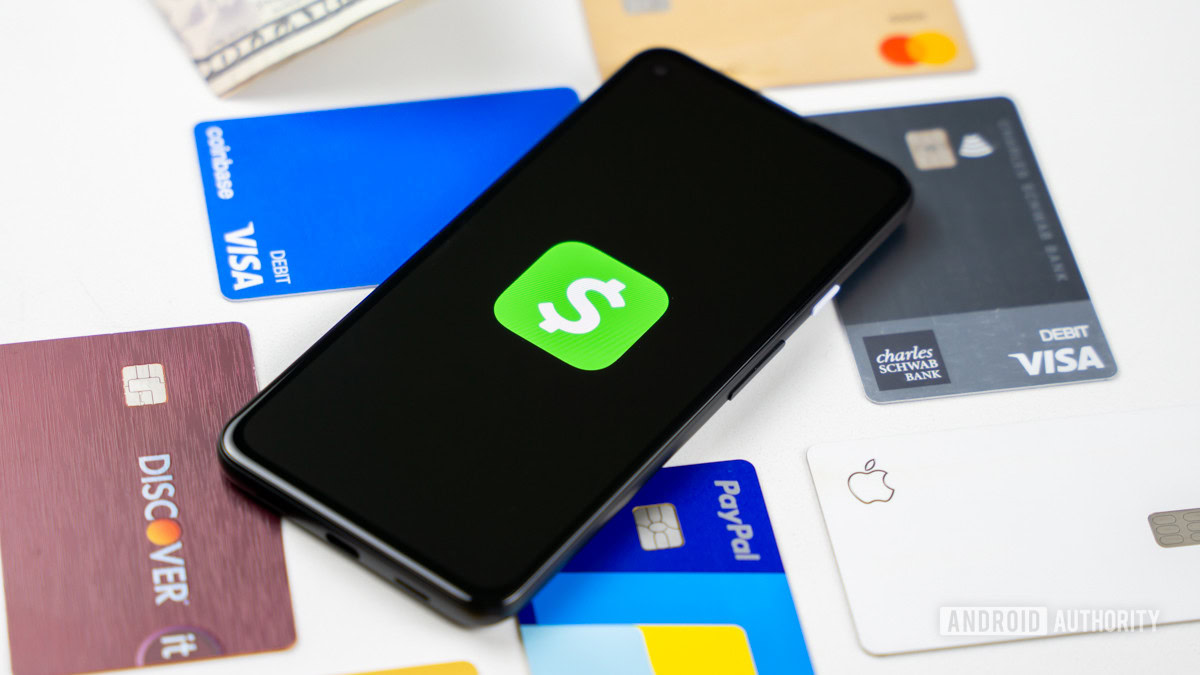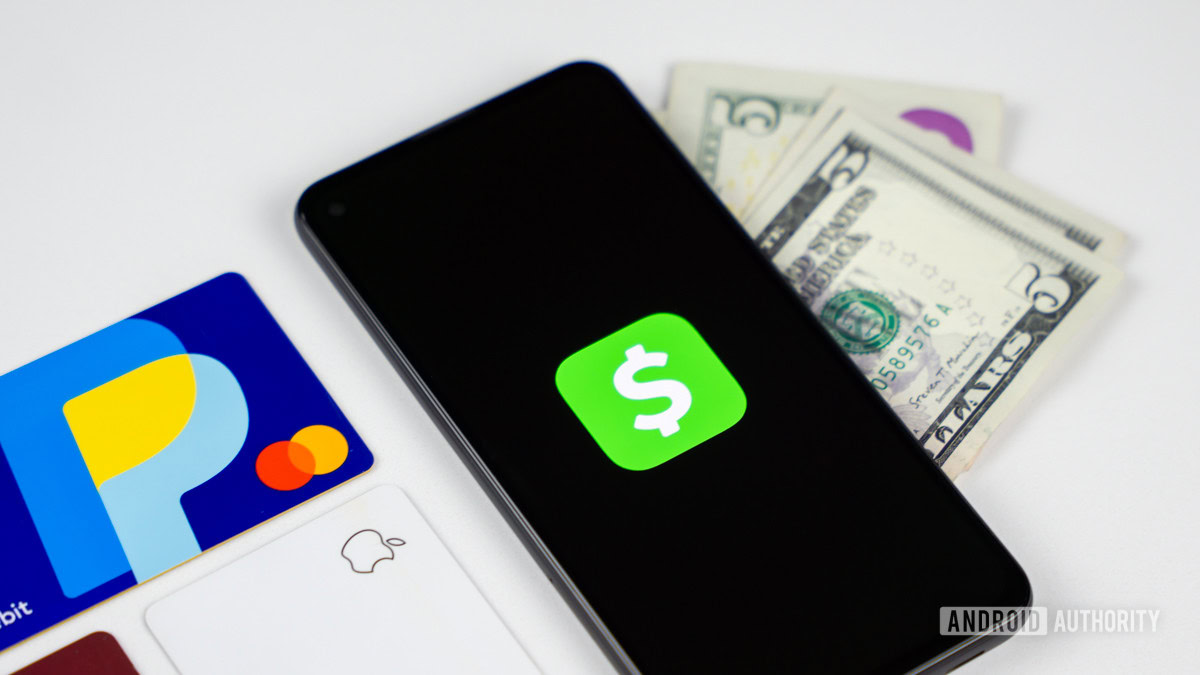Affiliate links on Android Authority may earn us a commission. Learn more.
Is Cash App safe? What you need to know about its digital transactions
December 14, 2023

We live in a world where financial transactions have extended beyond the walls of banks and into the virtual realm. Among various mobile payment services that have sprouted in this space, Cash App has claimed a significant user base thanks to its convenience and speed. As a peer-to-peer transaction service, it competes with popular alternatives such as Venmo and PayPal. But as with any virtual platform dealing with sensitive data, it raises an inevitable question: Is Cash App safe?
QUICK ANSWER
Yes, Cash App is generally safe to use. However, Cash App is not federally insured for all users, and does not offer fraud protection. Users should be aware of the risks and vigilant of common scams.
JUMP TO KEY SECTIONS
Is Cash App safe?

Yes, Cash App is considered safe for the most part, thanks to its data encryption, security features, and stringent adherence to PCI-DSS level 1 standard. These operational and technical requirements ensure that companies handle credit card data with the utmost security. Furthermore, the app provides fraud protection for unauthorized charges.
Cash App also incorporates additional safety mechanisms, such as Touch ID and PIN code security, to prevent unauthorized access to your account. However, it’s important to remember that the app’s safety measures can only go as far as its users allow. It’s crucial to be vigilant, as Cash App payments are instant and irreversible.
Finally, although marketers often present Cash App as an alternative to traditional bank accounts, it does lack certain safety measures. Most importantly, your Cash App balance might not have federal insurance. Only Cash Card users and those who are a sponsor of a sponsored account are covered under FDIC insurance. By the way, in this case, your funds would only be covered against bank failure, not fraud or scams.
How safe is Cash App vs other payment apps?
| Cash App | Venmo | Zelle | PayPal | |
|---|---|---|---|---|
Encryption | Cash App Yes | Venmo Yes | Zelle Yes | PayPal Yes |
Security features | Cash App PIN entry, Touch ID, or Face ID verification | Venmo Optional PIN entry | Zelle Touch or Face ID to login to your account but not for payments. | PayPal Unique one-time pin for each login attempt; key pinning |
Fraud protection for authorized payments | Cash App No | Venmo Yes | Zelle No | PayPal Yes |
FDIC insured | Cash App Only for Cash Card users and sponsored accounts. | Venmo Only for those who have cashed a check, bought or received cryptocurrency, or have set up direct deposit. | Zelle Yes (through the linked bank account) | PayPal Only for PayPal Savings Account, PayPal Debit Card, and Direct Deposit users. |
Similar to its peers, Cash App provides top-notch encryption and security features. However, there are notable differences in terms of money protection and insurance when compared to Venmo, Zelle, and PayPal.
For instance, while PayPal and Venmo offer fraud protection for authorized payments, Cash App and Zelle do not. This means if you don’t receive something you bought after making an authorized payment on Cash App, you won’t have recourse like you would with PayPal and Venmo.
FDIC insurance is kind of all over the place with these types of apps. Zelle works directly with your bank account, so it’s technically the only service you can use, as it’s covered by the linked bank account’s FDIC insurance.
Aside from that, PayPal offers passthrough FDIC insurance for some of its service, including those with a PayPal Savings Account, PayPal Debit Card, or Direct Deposit. Similarly, only certain funds are secured on Venmo. These include those who have cashed a check, bought or received cryptocurrency, or have set up direct deposit.
Common Cash App scams and how to avoid them

Despite Cash App’s robust security measures, it isn’t immune to scams, with the weakest link often being unaware users. Below are some common Cash App scams to look out for:
- Impersonation scams: Scammers often pretend to be Cash App support to access your account. Remember, official support will never ask for your sign-in code or PIN.
- False goods/services: Beware of anyone offering expensive items in return for Cash App payment exclusively, as this is usually a scam. Remember, you can’t usually cancel Cash App transactions.
- Random deposits: Unexpected deposits may be a setup for a scam. Always confirm the source of these deposits.
- Prize scams: Some scammers claim you’ve won a prize but require a fee to claim it. Cash App never requires a fee for contests or promotions.
- SSN scams: Do not share your Social Security number on the app unless you’re dealing with a trusted source.
- Fake relief payment scams: Be wary of claims offering government grants or relief program funds in return for your financial information.
- Cash-flipping scams: Avoid promises of high returns on a small investment, as these are typically scams.
- Fake refund scams: Beware of buyers claiming to have made a payment multiple times, demanding a refund for an item they never actually paid for.
- Romantic scams: Exercise caution when someone unknown to you expresses romantic intentions and asks for money via Cash App.
- #CashAppFridays scams: Scammers may use the real #CashAppFridays promotion to trick users into giving up a payment or login information.
- Phishing email scams: Scammers may send legitimate-looking emails to trick you into verifying your login credentials or clicking a malicious link.
- Fake security alert scams: Be aware of fraudulent emails claiming your Cash App account is compromised. They often include links to fake websites to steal your login information.
If you encounter anyone on Cash App who has approached you with these scams, it’s best to report and block them.
FAQs
Using Cash App carries the risk of scams or fraud, as with any digital payment platform, if users are not vigilant about security measures.
Yes, Cash App is a legitimate service owned by Square, Inc. However, users must be wary of scams and never share sensitive information.
While Cash App’s policy is not to offer refunds once a payment is made, in cases of unauthorized access, users may be eligible for refunds after investigation.
Both Cash App and Venmo use data encryption and fraud detection measures to protect users. However, Venmo offers fraud protection for authorized payments, while Cash App does not.
Cash App and Zelle both offer robust security features. However, because Zelle connects to your bank account and doesn’t store your money on the app itself, you are still covered by FDIC insurance.
Both have their strengths. PayPal has a broader global reach and extensive buyer protection, while Cash App’s interface is much simpler and easier to use.